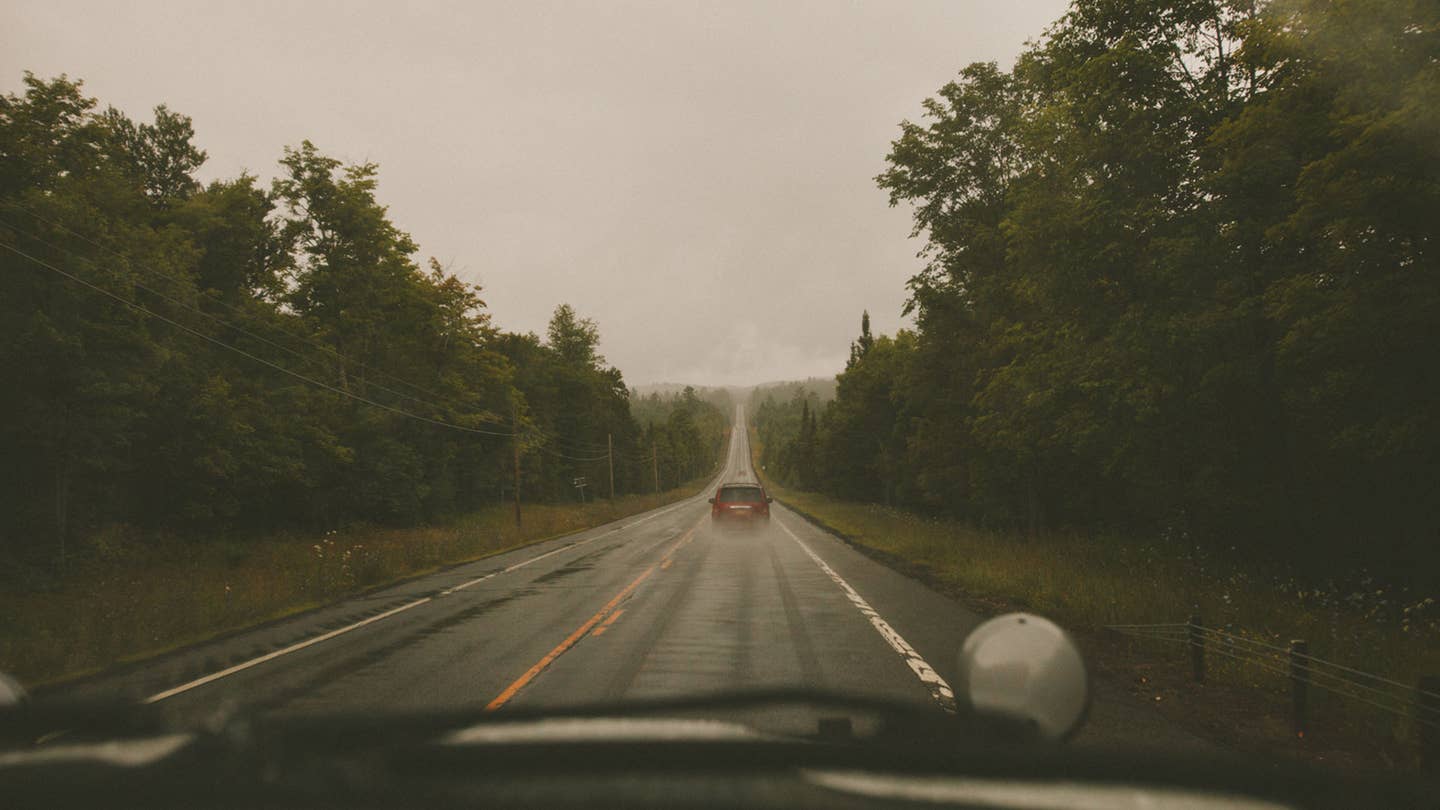In the Adirondacks, Working Out What We Need Out of Life
A good starting point: green hills, water, and stars above.

Somewhere north of Utica, the forests change their clothes, shifting from the soft, tender green of deciduous leaves to deeper, older conifer hues. The hills and ridges of the Adirondacks are darker, blue in the shadows. We work our way up through the tourist-trap town of Old Forge on 28, the road hugging close to wide, still water, dark as rippled slate in the pittering rain.
This is a place that cannot let go of its older self. It must have been a sight in the ‘60s. Old motor lodges sit in notches carved from the curtains of pine and fir that line the road, the thin neon of their metal signs long gone to storms or vandals. A handful of the low, long buildings still work a brisk business, but the majority are only busy returning to the wilderness that surrounds them.
There’s a town every ten minutes, it seems, each with a general store. A few with a post office, a fire hall. Sea planes float on their pontoons at the end of short docks, promising to take us up for a small fee. The sight of them turn me into a kid, pointing out the pasture side and stumbling over my words like an idiot. Is there anything so perfect in this world as old, straight wings over flat water?
It’s not yet the busy season. The singe of fall, the burning red and orange and yellow of autumn, is a few months off yet. We see mostly locals, or at least people who have spent enough summers paddling the lakes up this way to consider themselves a part of the place. Every car on the road has a kayak or a canoe on the roof, and not the cheap and indestructible Colemans or Old Towns of my river youth. These are sleek and glossy things, delicate and fast as any fish. Bones and skin made of Kevlar or carbon or gelcoat fiberglass, all laid by some skilled hand somewhere.
And it’s not until we stumble to our campsite that I understand why. We park the truck 20 short feet from the bank of a perfect and abandoned lake, the shore as wild as it’s ever been, the water clear and warm despite the cold rain. Juvenile trout swim in the shallows, nearly invisible against the brown stone bottom, the curl of their black-banded fins their only tell. Later, when the storm breaks and the sun shines, the water will ripple with insects skating on the thin surface as if it were ice. Bass as long as my forearm will leap up from below, break the surface and curl mid air for a moment before falling with a slap that echoes off the trees on the far side. It’s the only thing we hear.
And there are stars again. The old dusting of the Milky Way glows above, dimmer than it was in Nevada or Texas, but here all the same. Seeing it stretched from one ragged horizon to the next is a breath—the gasp I’ve been hunting since we left the west. It smalls me, pulls me out of the dim confines of my skull and forces me to stand for minute on the ground at my feet. Not worry about the next ten minutes, or ten days. Just be.
We’re working it out, figuring what we need out of where we’ll call home when this is over. The practicals and intangibles. Our people. Good schools and a hospital. Green hills, water, and stars above.
